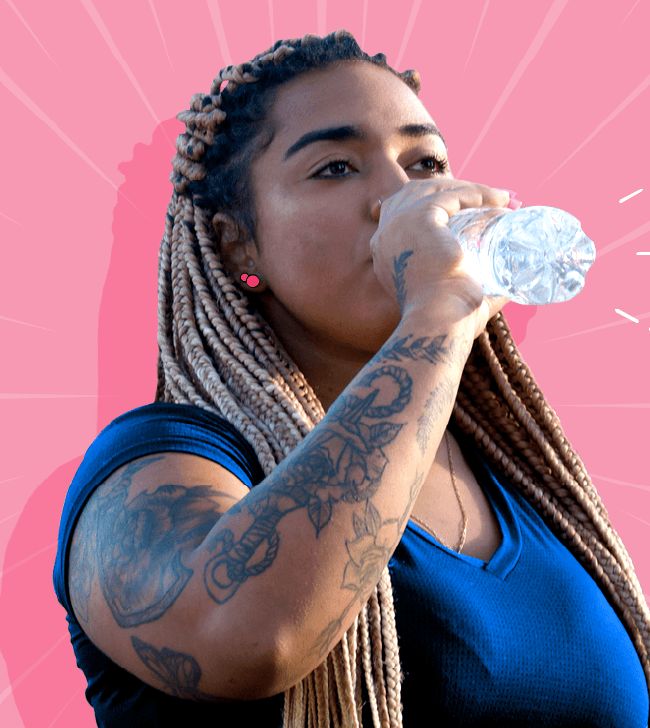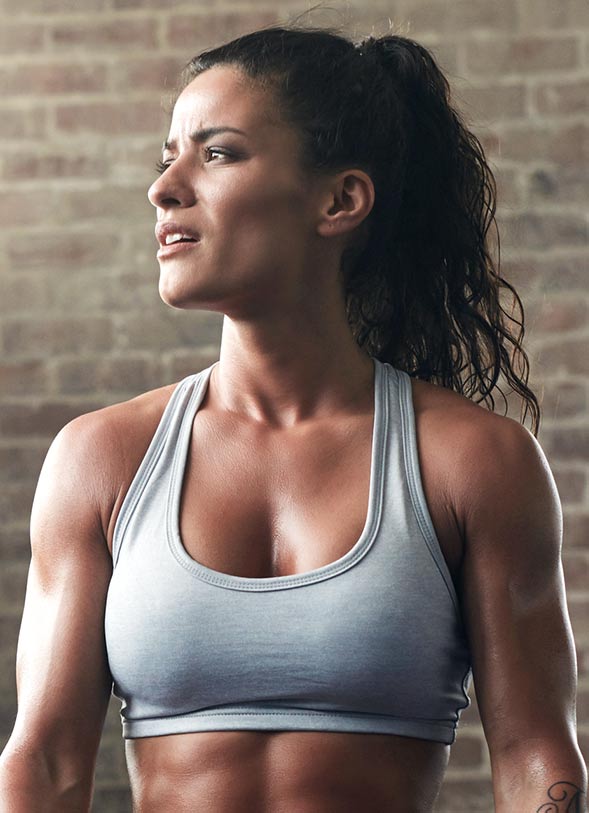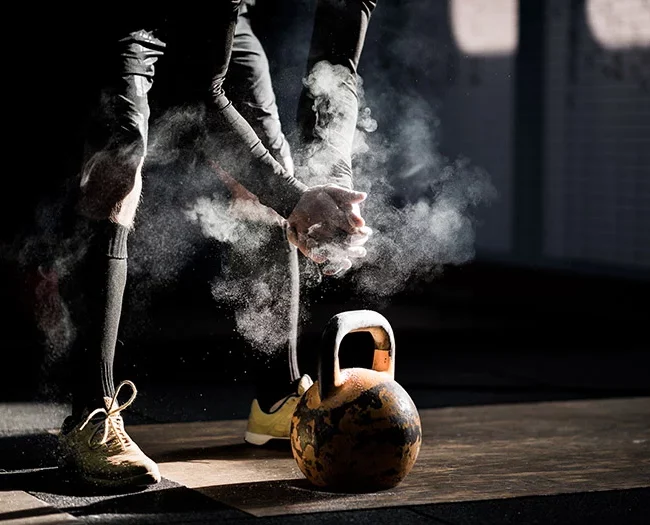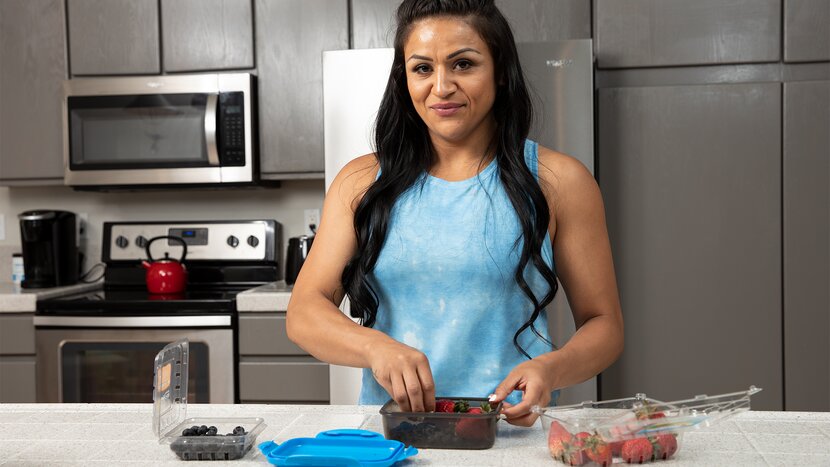
Fill up and get in shape with healthy snacks that taste great. You can only eat so much chicken and broccoli!
Snack on the wrong foods, and you end up feeling heavy, tired, and dragging through your workouts. Snack on the right healthy foods, though, and you can increase your energy enough to face down whatever your program says to do in the gym. Eat your way into fitness—especially when you cut out junk and replace it with these healthy snack recipes. Best of all, you can eat these on the go or add them to recipes for even more health benefits.
These protein-rich, low-calorie, nutrient-dense foods are powerful stuff! Eat them to keep you full and focused on your goals all day long!
High-Protein Snacks
1. Cottage Cheese – 25 g per cup
Cottage cheese contains slow-digesting casein protein to keep you full longer. It’s a serious source of protein at 25 grams per cup, as well as a good source of calcium. And in case you haven’t had it in a cottage cheese fruit bowl in a while, well, it’s even better than you might remember as a kid.
2. Edamame – 17 g per cup
3. Pumpkin seeds (pepitas) – 12 g per cup
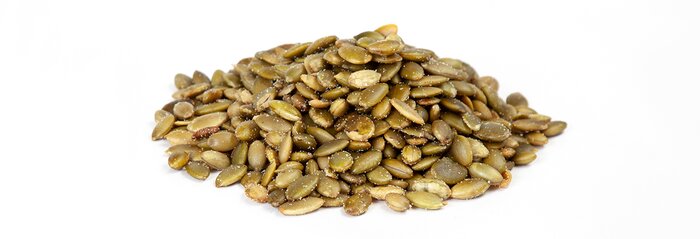
4. Canned fish (or in pouches) – 24 g per 3 oz.
5. Plain Greek yogurt – 17 g per cup
6. Icelandic yogurt (skyr) – 11 g per cup
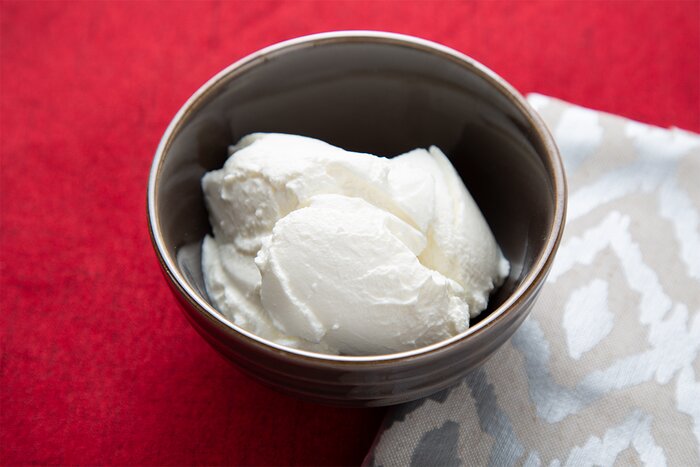
7. String cheese – 6 g per stick
8. Milk (2%), on its own or in a protein shake – 8 g per cup
9. Jerky – 33 g per 100 g
10. Protein bars – typically 20-30 g per bar
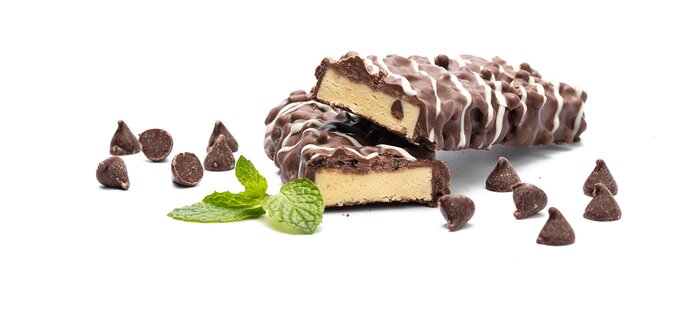
Today’s best protein bars taste better and have better macros than you can probably imagine. Could they be the perfect treat? We think so.
Low-Carb Snacks
11. Hard-boiled eggs – 6 g per egg
This could definitely go in protein-rich snacks, as well! But those who are going low-carb can benefit more than almost anyone else from this inexpensive, high-quality snack. They’re full of vitamin D, zinc, and all of the B vitamins, and when you mix them into a simple protein-rich, low-carb recipe like these egg-salad-filled endive cups, the result is, in a word, “eggcellent.”
12. Nut-butter packets – around 3 g per packet (depending on brand and if sweetened)
13. Celery – 3 g per cup
14. In-shell pistachios – 34 g per cup
15. Mixed nuts – 28 g per cup
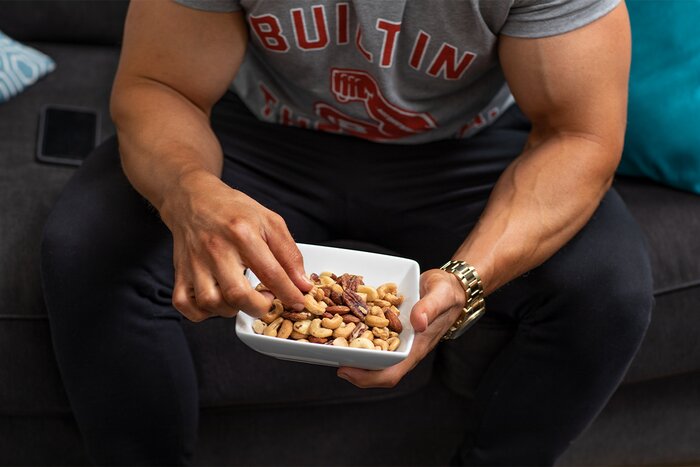
16. Walnuts – 11 g per cup
High-Fiber Snacks
17. Dried Fruit – fiber content varies by type of fruit
Adding dried fruit to your diet can add fiber, antioxidants, and healthy carbs to help power your training. And they’re versatile! Sprinkle them on a salad, eat them plain, or power up your breakfast by making dried date and maple protein oatmeal.
18. Raspberries – 8 g per cup
19. Prunes – 12 g per cup
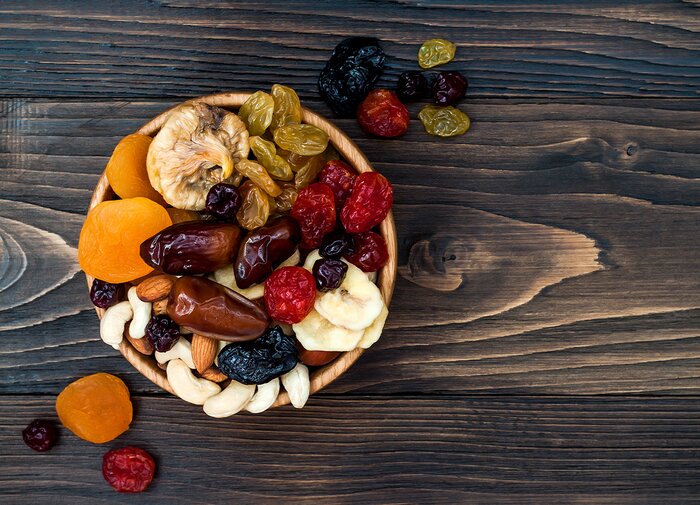
20. Apricots – 9 g per cup
21. Strawberries – 3 g per cup
22. Kale chips – 3 g per 28 g serving (more if they’re coated in high-fiber flavorings)
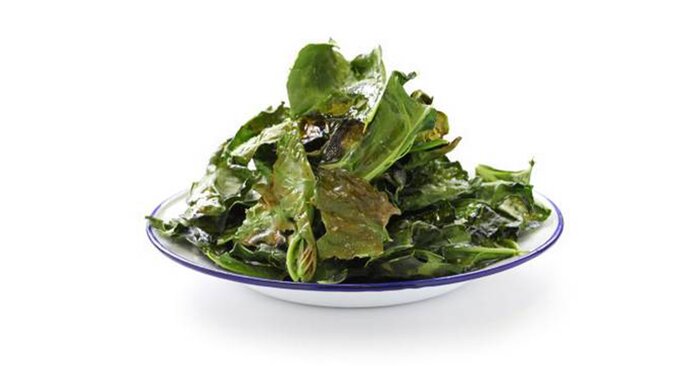
Nutrient-Rich Snacks
23. Protein powder smoothies
Sure, you can just dump a scoop of protein powder into water and chug. There’s a time and a place for that! But if you’re in this for the long haul (which you are), then you also need to become a pro at mixing nutrient-rich ingredients like fruits, veggies, and seeds for an all-in-one powerhouse shake that’s perfect any time of day. Not a pro? Well, our guide to the 50 best smoothie recipes will make you one in no time!
24. Tomato or vegetable juice – vitamins A and C, potassium
25. Bean chips – 4 g protein, 3 g fiber per ounce
26. Dark chocolate (70-85% cacao) – iron, magnesium, copper, manganese, 3 g fiber


